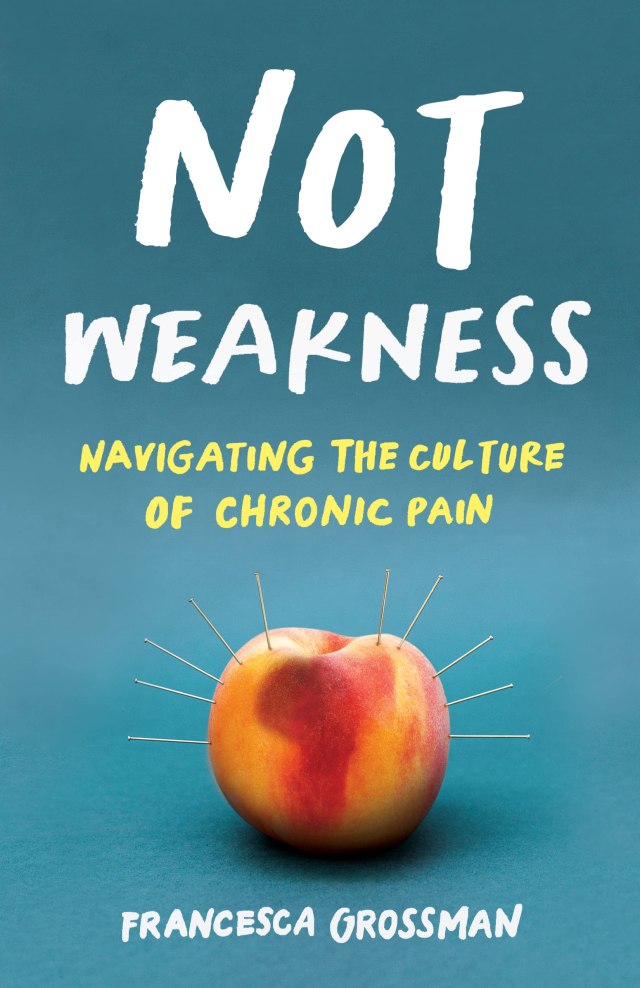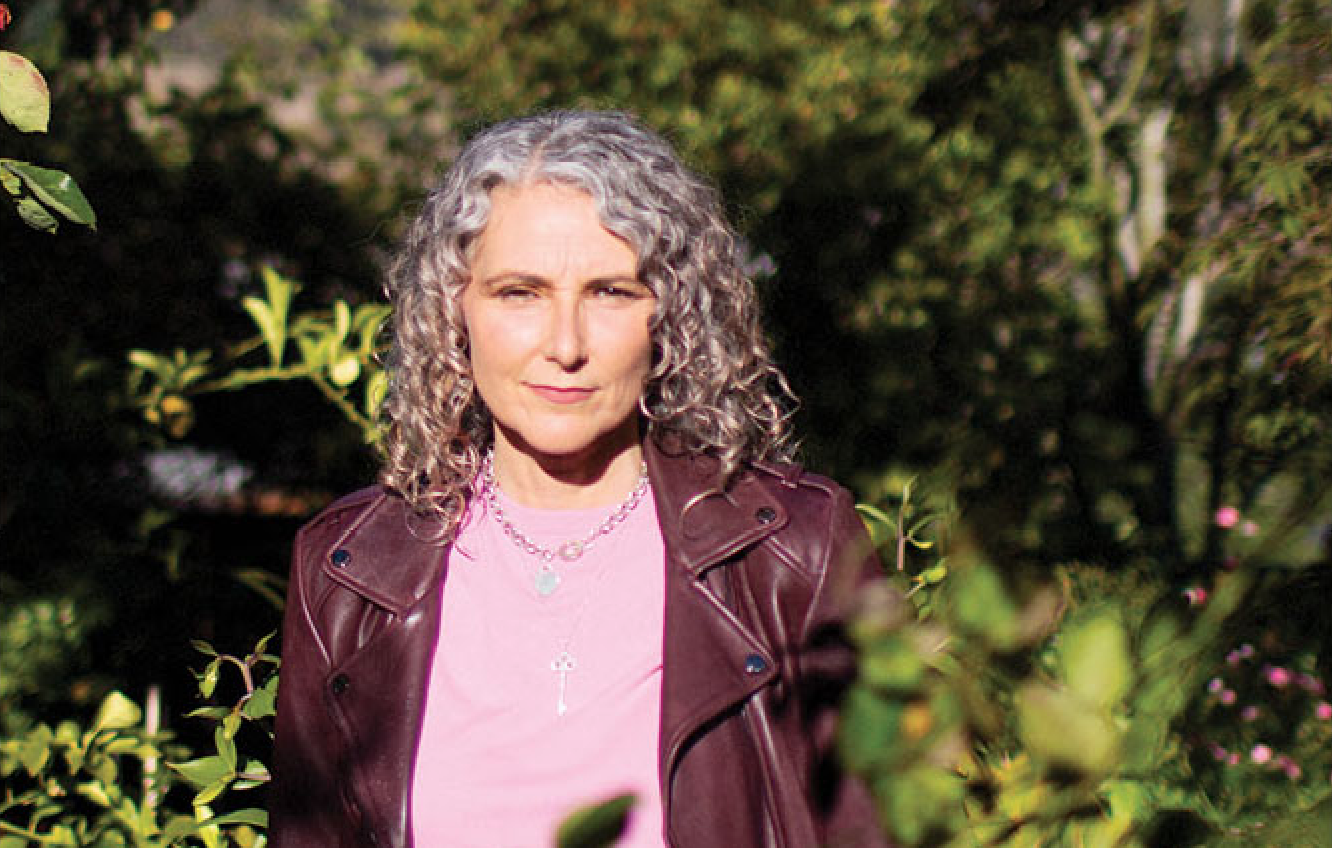
By Francesca Grossman
The first time I had serious surgery, I had my thyroid removed. If there is a better metaphor for being silenced than to have your throat cut out, I don’t know what it is. Once the cancer was identified, the next few days were a whirlwind. The doctor found the biopsy was malignant (in previous biopsies he had found only benign tissue), and surgery was scheduled. I had cancer and then in two days, I didn’t. But I had had it for eight years. Eight years of no one believing me when I said things were wrong. Doctors literally telling me to “shhhh.” Eventually there was no denying it. The nodule had grown too fast; it hurt to swallow and I had difficulty speaking. And then in an instant it was gone. My throat was cut.
I know it was not as simple as that, but I felt silenced in an extreme and brutal way—first by being ignored and then by treating me. And the worst part was I was right. And there is not a doubt in my mind that had I been a man, I would have been heard.
In the 2001 study, The Girl Who Cried Pain: A Bias against Women in the Treatment of Pain, the authors explain “women are more likely than men to be undertreated or inappropriately diagnosed and treated for their pain.”
In this study, along with many others with similar outcomes, researchers found women are more likely to be offered sedatives than pain medication by medical professionals when they describe their pain. Calming them down, not treating their pain, is the operative. Why does this difference exist? The study found many healthcare professionals feel “women are not accurate reporters of their pain; men are more stoic so that when they do complain of pain, ‘it’s real.’”
As The Girl Who Cried Pain study concludes, “Men are taken more seriously than women when it comes to reporting pain. But it’s not only that, women are dismissed, condescended to, and ignored, often leading to them avoiding to address pain in future situations and keeping them home, suffering, and often perpetuating diseases and injuries that can lead to more and more difficulties down the line, sometimes fatal ones.”
As I talk to women, it becomes clear this trend of keeping quiet is something many of them have experienced, often repeatedly. All of the studies I have read indicate the data is consistent, but there is something else needling me. It’s not only the medical profession that is silencing women, it’s the media too, and the culture in which we live, the patriarchy that we all grew up with. We repeat the patterns we learn; we pay attention to where our attention is called, and that takes great tolls on us, especially when we are suffering.
When I asked Emily, who has been struggling with debilitating joint pain, connective tissue disease, autonomic dysfunction, and migraines since she was twenty, if she had experience with this kind of silencing, she said:
“When I began experiencing joint pain at twenty-nine, the rheumatologist I saw dismissed me when I told him an anti-inflammatory was barely touching the pain. I then saw a slew of specialists over the next several years, the majority of whom told me or alluded to the idea, ‘it was “all in my head.’ I was dosed with an array of psychotropic medications, which numbed me out emotionally where I couldn’t function mentally, while still experiencing intense physical pain. This went on for years.
“It would be ten years before a correct diagnosis of two different connective tissue diseases and autonomic dysfunction (which caused scary fainting spells, since at that time I lived by myself) was made. When I was finally heard, believed, and treated/medicated properly, it was as if a 1,000-pound boulder had been lifted.”
Emily is not alone. According to the New York Times piece, Women Are Calling Out ‘Medical Gaslighting,’ “Women say doctors frequently blame their health problems on their mental health, weight or a lack of self-care, which can delay effective treatment . . . research suggests that women are twice as likely as men to be diagnosed with a mental illness when their symptoms are consistent with heart disease.”

In The Girl Who Cried Pain, the authors state women are “more likely to be treated less aggressively in their initial encounters with the health-care system until they prove that they are as sick as male patients, a phenomenon referred to in the medical community as ‘Yentl syndrome.’”
This silencing is, of course, even more egregious in disadvantaged populations in this country, particularly for Black women and other women of color.
According to the CDC, Black women are three-to-four times more likely to die from pregnancy-related complications than white women. Ana Langer, professor at the Harvard T.H. Chan School of Public Health, thinks a lot of what’s happening is medical professionals are not listening to Black women.
“Basically, Black women are undervalued,” she says. “They are not monitored as carefully as white women are. When they do present with symptoms, they are often dismissed.”
While we cannot assume all dismissal and mistreatment result in silencing, we have to acknowledge there is an inherent gender bias in our health-care system, which can be extremely dangerous. A 2000 study published in The New England Journal of Medicine found, “Women are seven times more likely than men to be misdiagnosed and discharged in the middle of having a heart attack. Why? Because the medical concepts of most diseases are based on understandings of male physiology, and women have altogether different symptoms than men when having a heart attack.”
It’s so tiring to live in pain. When we are exhausted, advocating for ourselves feels impossible. Plus, in the end, we need these doctors and other health-care professionals to help us. We don’t want to make them angry or agitated. We want them to listen to us, yes, but we also want them to treat us, and sometimes sitting quietly is the only way we can even be present enough to get what we need. We often feel like we’ll get better treatment if they like us, so we go out of our way to be friendly, non-confrontational, and quiet.
What that means is that we must speak for each other as well as speak up for ourselves. When we feel well, we must advocate for health-care professionals to listen and to hear; for fair treatment and allocation of time and resources; and for equity in response and treatment across all demographics. We must convince our partners and families we are not being heard, and yes, we must sometimes depend on them to be our voices when we cannot be our own. We need to know we are not alone in this, and that other women out there understand, empathize, and will fight for our right to be heard.


Francesca Louise Grossman is a writer and writing instructor. Her work has been published in The New York Times, Brain, Child Magazine, The Manifest Station, and Word Riot, among others. In her 20s and 30s she endured thyroid cancer, Crohn’s disease, and other autoimmune conditions that left her feeling isolated in her suffering. Now Francesca shares her personal experiences and those of 20 other women with chronic pain in her new book, “Not Weakness: Navigating the Culture of Chronic Pain” (April 18th, 2023, She Writes Press), in which she challenges the toxic culture of shame, humiliation, and fear that surrounds pain, particularly in women. Find out more about her work at https://francescagrossmanbooks.com/.
[Endnotes]
1. D. E. Hoffmann and A. J. Tarzian, “The Girl Who Cried Pain: A Bias Against Women in the Treatment of Pain,” Journal of Law, Medicine, and Ethics 29, no. 1 (Spring 2001): 13–27. 2. Hoffmann and Tarzian, “Girl Who Cried Pain,” 13–27. 3. Hoffmann and Tarzian, “Girl Who Cried Pain,” 13–27. 4. Elizabeth G. Nabel, “Coronary Heart Disease in Women—An Ounce of Prevention,” New England Journal of Medicine 343, no. 8 (August 24, 2000): 572–74. 5. Joe Fassler, “How Doctors Take Women’s Pain Less Seriously,” Atlantic, October 15, 2015. 6. Melinda Wenner Moyer, “Women Are Calling Out ‘Medical Gaslighting,’” New York Times, March 28, 2022. 7. Hoffmann and Tarzian, “Girl Who Cried Pain,” 13–27. 8. Tina K. Sacks, Invisible Visits: Black Middle-Class Women in the American Healthcare System (New York: Oxford University Press, 2019). 157 9. Harvard T.H. Chan School of Public Health, “Why Black Women Face a High Risk of Pregnancy Complications,” Harvard Gazette, February 25, 2019, www.hsph.harvard.edu/news/hsph-in-the-news /black-women-pregnancy-complications/.
















